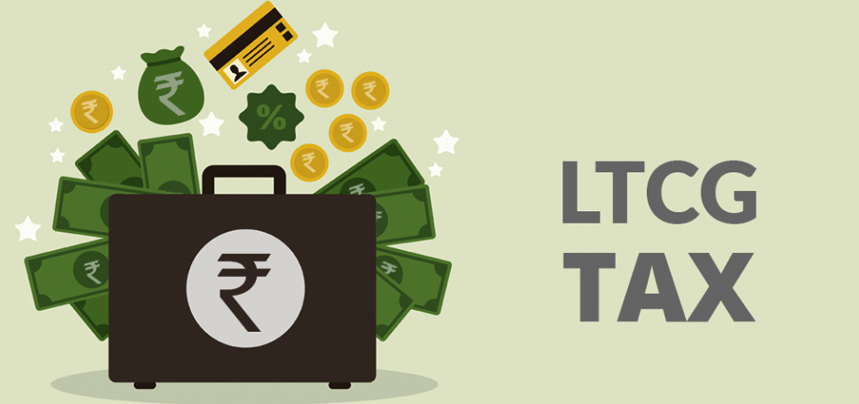Market participants expected the government to re-introduce the Long Term Capital Gains (LTCG) tax on equity assets in the Budget 2018. As expected, Arun Jaitley levied an LTCG tax rate of 10% on long-term gains without indexation benefits. It means you must pay a 10% tax on payments from selling an equity asset owned for over 12 months. The support can be a unit of an equity-oriented fund, a listed equity share, or a business trust unit. However, gains up to Rs 1 lakh are exempt from tax under LTCG. Decoding the LTCG tax on equity is very easy. Let’s look at a few basic rules to understand this new tax.
The rules
1) The LTCG tax applies to gains made on selling equity assets in the next financial year starting from April 1, 2018. It does not apply to transactions in the current fiscal year, including February 1, 2018, and March 31, 2018.

2) To get a basic idea of LTCG, you must understand two terms: the Fair Market Value (FMV) and the acquisition cost. The FMV is the highest price quoted for a listed equity share on an exchange on January 31, 2018. The highest price quoted on the most recent trading day before January 31 can be used for a company share that did not trade on January 31. It is possible that the claims of a public company may not be listed on a stock exchange. The FMV for such an unlisted asset will be its Net Asset Value (NAV) on January 31.
3) Under the new tax law, the acquisition cost will be higher than the FMV or the purchase price. When the sale price is less than FMV, the acquisition cost will be higher than the purchase or sale price.
4) The difference between the sale and acquisition costs gives the capital gain or loss.
READ MORE :
- How to Choose a Car Finance Broker
- How to Earn Maximum Interest from your PPF Account
- The Best Times That You Should Consider Debt Consolidation
- Financing Options for REO Properties
- Why It’s Important to Be Transparent About Your Negative Option Billing Program
For example, you purchased a share of the ‘X’ company on January 1, 2017, at Rs 10. Its FMV is Rs 20. You sold it for Rs 30 on April 1, 2018. Your long-term gain now is Rs 10 (Rs 30-Rs 20).
You may have received bonus shares on existing equity shares. The LTCG tax applies to bonus shares as well. Evaluate the tax component if you plan to sell them after March 31, 2018.
Bonus shares are directly credited to the demat account, and you do not pay any amount to receive them. Under the new tax law, the bonus share’s FMV will be considered its acquisition cost.
What about a capital loss?
Capital losses made on selling equity investments after March 31, 2018, can be set off and carried forward. This benefit does not apply to capital losses between February 1, 2018, and March 31, 2018.
For example, you may have purchased a share of the ‘Y’ company on January 5, 2017, at Rs 200. Its highest price on January 31, 2018, or the FMV, was Rs 300. You sold the share on April 1, 2018, for Rs 150. The sale price (Rs 150) is less than the FMV (Rs 300). Hence, the acquisition cost is Rs 200, the highest purchase price (Rs 200) or sale price (Rs 150). Therefore, you incur a capital loss of Rs 50 (Rs 150-Rs 200).
Is TDS applicable?
Non-resident Indians need to pay taxes at source on long-term gains made in the next financial year. Simultaneously, a resident taxpayer and a Foreign Institutional Investor (FII) can deliver it while filing an income tax return (ITR).
Conclusion
Investment planning is more important with the implementation of LTCG on equity. Evaluate the LTCG tax applicable before churning your equity portfolio in the next financial year.

